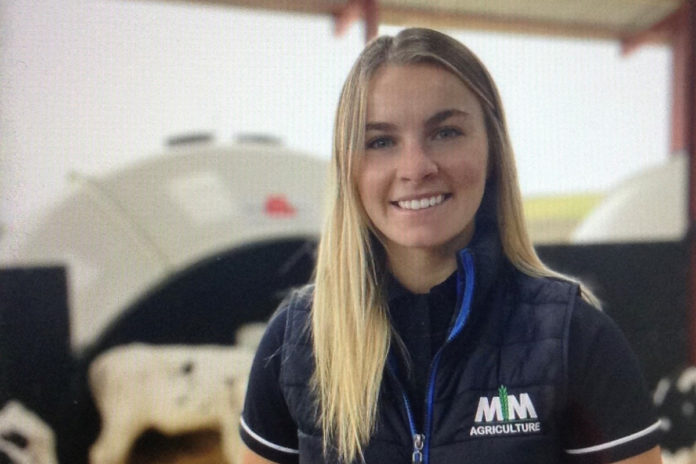Lauren Henry in conversation with our editor, Catherina Cunnane, in this week’s women in ag segment. The Harper Adams graduate discusses her educational background and her family-run 160-cow dairy farm.
“For as long as I can remember, I have always been surrounded by, and interested in, animals.
As I have grown up, I have been fortunate enough to be increasingly involved on the farm, especially in calf rearing, specifically calf health, welfare, and nutrition, which has led me to my graduate job.
My dad (Tommy), mum (Heather) and brother (Mark) work on the farm, Mostragee Holsteins, here in Stranocum, Ballymoney, full-time.
My dad is a fourth-generation dairy farmer here at Mostragee. We always had dairy cows, also beef and sheep and grew potatoes years ago
We run a 160-strong herd on our 170-acre enterprise, where high-yielding cows remain indoors all year. Lower yielding cows graze outside from about May through to the end of September.
We choose Holsteins for high milk production, and they are generally nice to look at and work with.
Overall, we like to breed a balanced cow with good legs and feet, good udder attachment, and a nice, open rib.
We AI with sexed semen for two services and then a third with beef semen or run with an Angus or a home-bred stock bull.
Furthermore, we calve all year round mainly to keep a steady workload, milk production and cash flow.
We put a new parlour in 2008, milking 100 cows, so with expanded with the new parlour.
Pushing numbers to 200 cows and production
Overall, we would like to increase numbers. Therefore, we are keeping all our own heifer calves as replacements, aiming to calf them at 24/25-months.
Besides, we sell all bull and beef-sired calves from our herd, which has a calving interval of 398 days.
Milk is supplied to Lakeland Dairies. The herd is currently average over 11,000L, with butterfat averaging 4.3% and protein averaging 3.4%.
We believe soil health is of great importance; healthy soil makes for good plant growth making healthy animals. In terms of grazing management, with a maximum of 30 cows grazing at any one time, it is not a major priority for us.
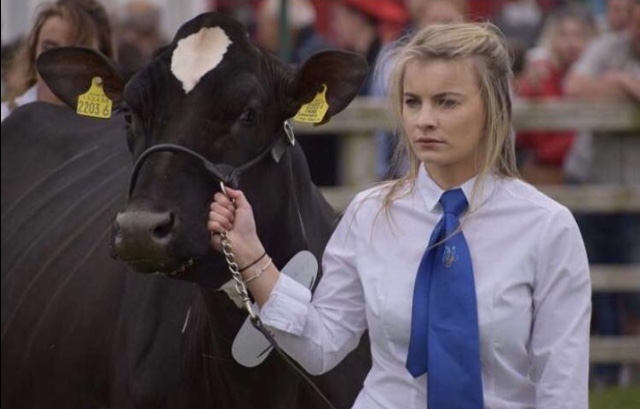
Parlour and accommodation
We have a 20:40 swing over Pearson parlour with auto-ID and automatic cluster removal. We are milking three times a day, which takes approximately 1hr 40mins / milking.
There are two cubicle buildings on either side of the parlour. One side accommodates 140 high-yielding cows, and the other accommodates 100 cows split for low-yielding cows and dry cows.
We have a purpose-built calf shed, which houses 30 calves at one time in 5 separate bays. Furthermore, we like to start calves off in individual pens for 3-4 weeks before allowing them into groups of 6.
We recently installed a new HeatTime detection monitor with rumination activity.
Awards
We are members of the North Antrim Dairy Farmers Development Group.
Most recently, we won the Northern Ireland Show Association (NISA) cow of the year in 2019. Besides, we also had the champion calf at the Northern Ireland Holstein Young Breeders (NI HYB) calf show in 2019.
I love working and handling cows and calves every day. And every day is a learning day. There’s not a day that goes by that I do not pick something new up, whether from my dad or a farmer I have been talking to.
I have a passion for learning more and more about cows. Bringing new life into the world gives me that fuzzy happy feeling that I do not think will ever go away.
On the farm at home, we would like to increase the number of milking cows to 200 steadily. We would also like to build a new meal shed and convert the current shed to accommodate weaned calves.
Everyone aims to produce more milk from forage with fewer concentrates.
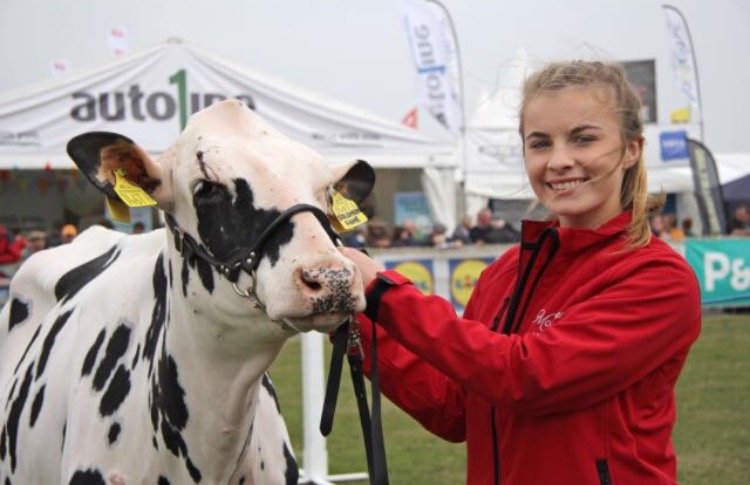
Weather and the vegan agenda
The weather is a never-ending challenge regarding farming of any kind. Usually, there is too much rain, but this year, we had a surprisingly good summer, and we were struggling for grass growth as it was so dry.
Public perception of dairy farming can also be a struggle, and activists make this more difficult for dairy farmers.
For example, the recent vegan activist strike outside Arla in the UK where milk lorries were unable to get into the plant, and many farmers were not paid for their milk.
Harper Adams graduate
I graduated from Harper Adams University with a 2:1 BSc (Hons) Animal Production Science degree in June of this year, having enrolled in the programme in 2017.
I worked at Cargill Animal Nutrition, where I held a technical and marketing role. Within this, I worked with the ruminant team dealing with technical queries from the commercial team while working with the formulations team to devise specific farm minerals and altering diets.
My marketing role required supporting the organisation of events/seminars, support marketing campaigns, social media and advertising communications and supporting customer campaigns.
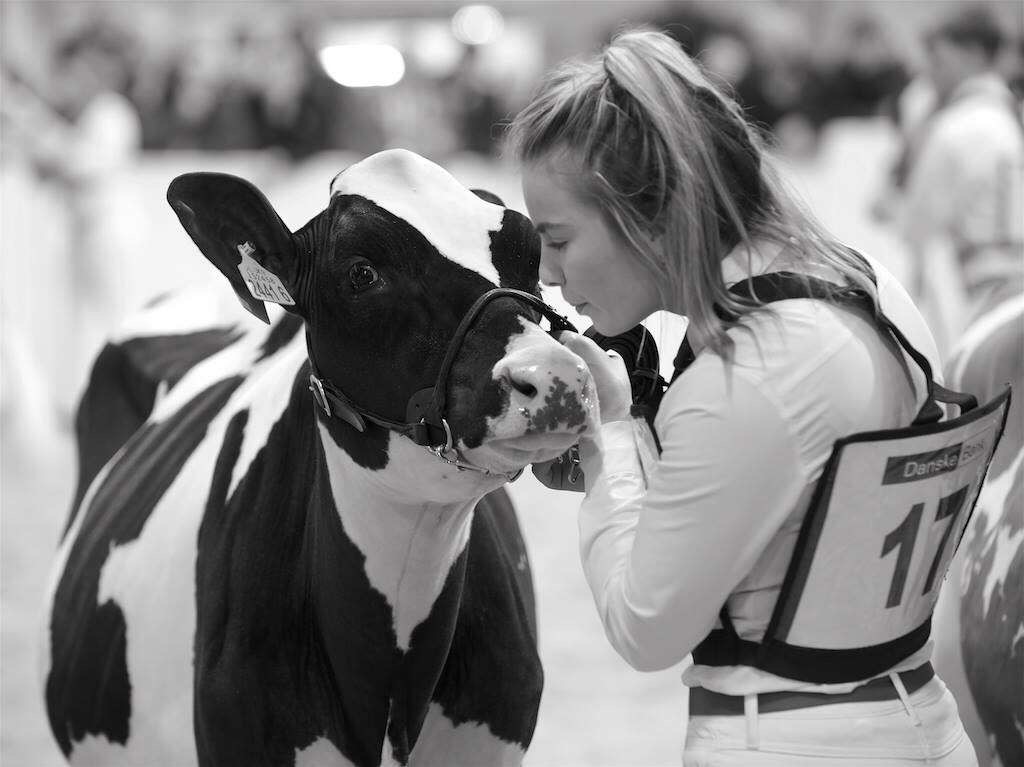
MM Agriculture
I was lucky enough to secure a job before finishing my final year studies at MM Agriculture. McGuckian Milling is a small, family-based agricultural feed mill and distributor specialising in dairy, beef and sheep feeds in Cloughmills, Ballymena.
I moved to fill the position of youngstock specialist in June.
My responsibility is to offer advice on any aspect of calf and youngstock rearing from colostrum management to all aspects on nutrition; may it be general management, selecting the best milk replacer and starter feeds, to housing and equipment.
I also offer calf audits, designing bespoke feeding protocols, weighing and measuring services and monitoring calf growth rates to aim for the target of 24-month calving.
A typical day in my life
A typical day starts at 6.45 am, out in the calf shed, getting all my calves fed and bedded before heading off to work.
My working day consists of speaking to potential new customers on what services I provide and how I can help with their calving season, checking up on new customers, calibrating or setting feeding protocols on calf machines, weigh banding calves and monitoring growth rates with the odd bit of work on social media creating new content for our Facebook and Instagram pages.
Then when I finish work, I come home, back into the calf shed for the evening feed at 6 pm.
I love meeting and speaking to different people every day. Being able to help farmers in any way regarding calf health, welfare, management, or nutrition will always put a smile on my face.
Rearing healthy calves and youngstock is a challenging job and can be approached in many different ways to suit individual systems.
Growing a good dairy heifer or beef animal depends on the feeding, management, and environment during the first few weeks of life. It takes all three of these aspects of calf rearing for it to be successful.
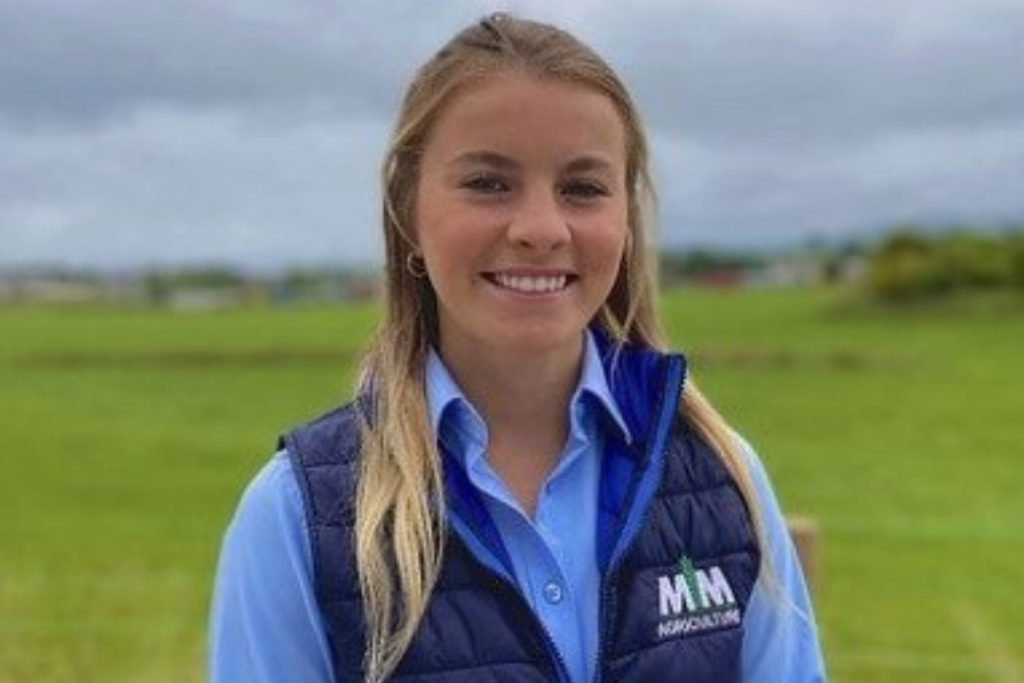
Women in agriculture
I am not really treated the same as my male counterparts in the sector.
When I was at school, I was told agriculture was not an occupation for a woman, which made me more driven to pursue a career and be successful in the industry.
As a young female, there can be the odd comment on appearance, ability, and knowledge on-farm. However, most farmers appreciate and take the time to speak and listen.
Like any job, it is about building relationships, good rapport, and gaining trust with farmers to have full confidence in what advice is given.
I think women are beginning to become more recognised as they are now pushing themselves further into the agricultural industry and are no longer seen as just ‘women’.
And on-farm, when addressing calf rearing, it is often the woman who is ‘in charge’ regarding rearing calves.
More schools should be encouraging and offering agriculture as GSCEs and A-Levels, so girls are aware of the successful careers within the agriculture industry.
Everything happens for a reason
There is so much pressure nowadays that you have to go to uni. Leaving school, after my A-Levels, I did not get the grades I needed to get into my university of choice.
I took a year out and decided to try again. This was honestly the best decision I have ever made; I worked part-time, and it gave me a different outlook on life and made me realise it was not the end of the world.
It pushed me to work harder and has helped me get to where I am today.
Females are just as capable as males. When you look at calf teams/specialists in the UK, they are majority females, which helped drive my career choice.
Being a female should not hold anyone back from what they want to achieve in their career,” the Harper Adams graduate concluded.
To share your story like this Harper Adams graduate, email – [email protected]


